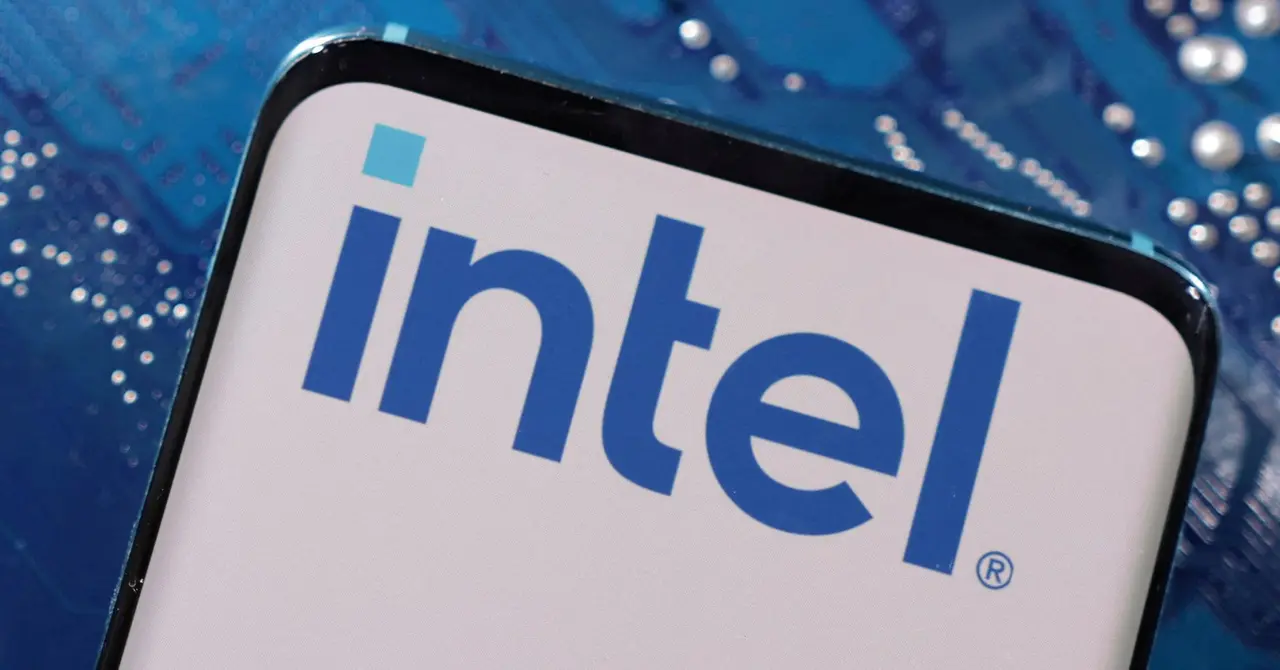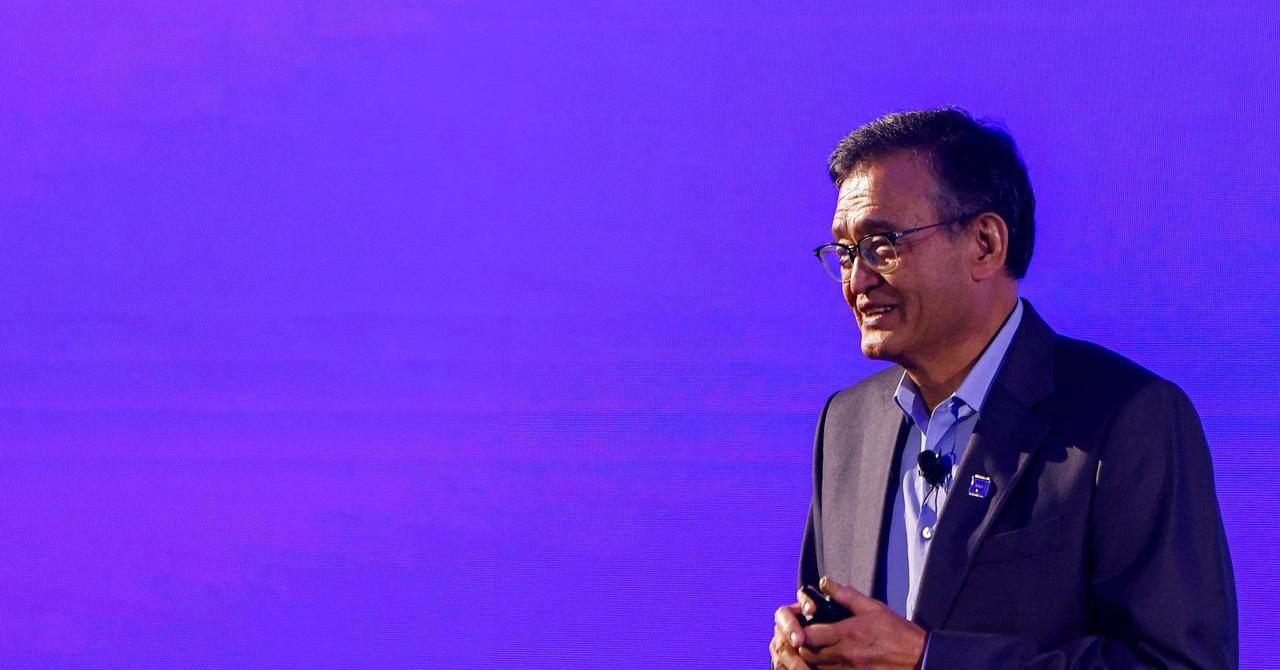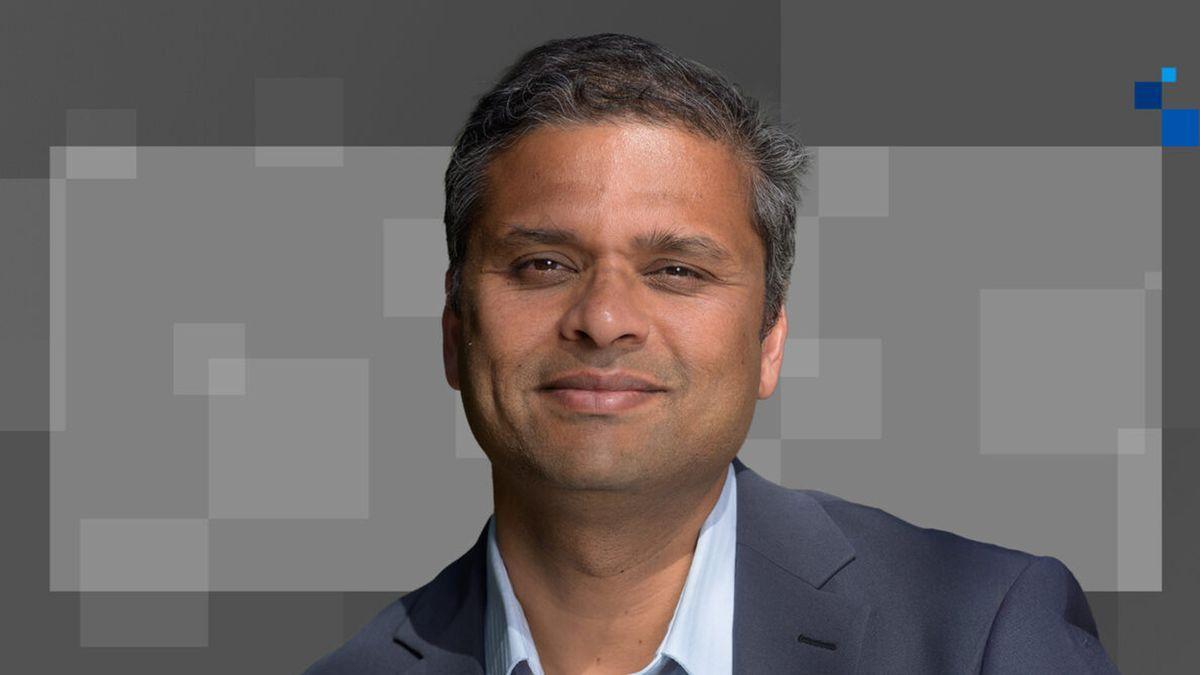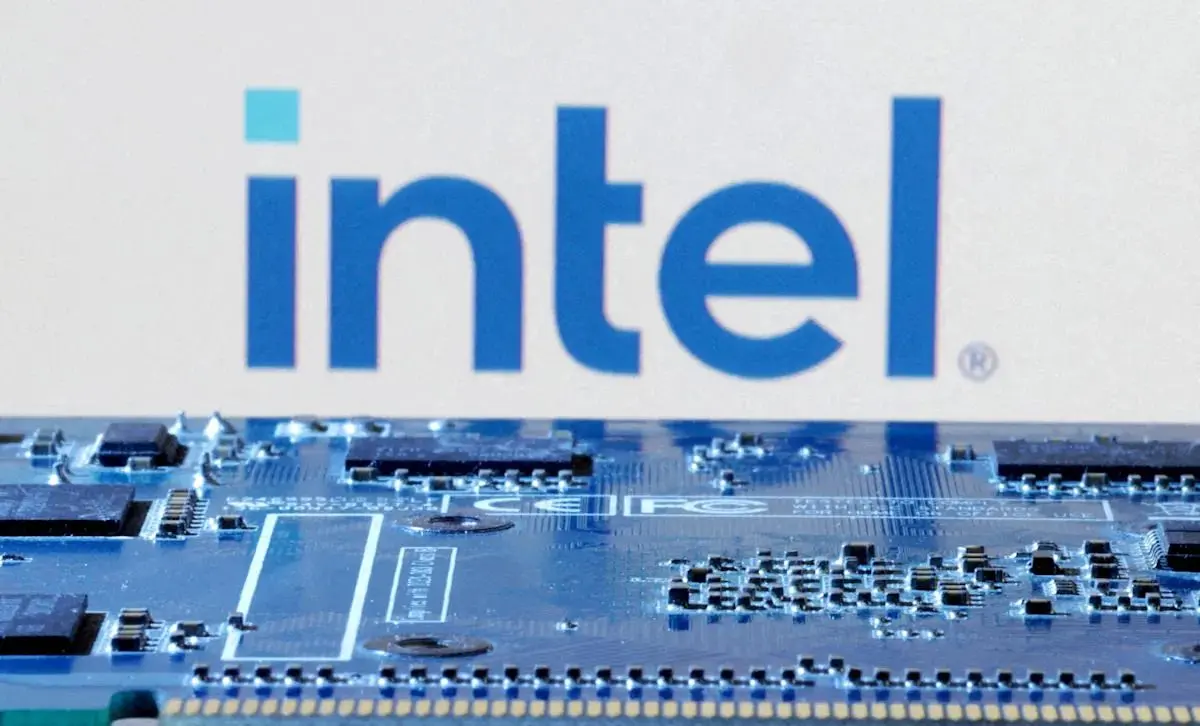Intel's Chief Strategy Officer Departs Amid Major Restructuring
3 Sources
3 Sources
[1]
Exclusive: Intel's top strategy officer to depart this month
June 27 (Reuters) - Intel's top strategy executive, Safroadu Yeboah-Amankwah, is departing the company, the latest change since Lip-Bu Tan took the chipmaker's helm in March, two people familiar with the matter told Reuters. Intel confirmed the departure, saying, "We are grateful for Saf's contributions to Intel and wish him the best." Yeboah-Amankwah, who has served as Intel's chief strategy officer since 2020, is leaving on June 30, said the two people, who spoke on condition of anonymity. Yeboah-Amankwah has overseen growth initiatives, strategic partnerships and equity investments for Intel, among other responsibilities. Some of Yeboah-Amankwah's strategy functions will now fall to Sachin Katti, whom Intel recently elevated to chief technology and AI officer. Intel Capital, the company's venture arm, is reporting up to Tan, said one of the two people and a third source briefed on the matter. Tan is a prolific investor and founded San Francisco-based venture capital firm Walden International in 1987. As Intel's CEO, Tan so far has flattened the semiconductor giant's leadership team and taken direct oversight of its important data center and AI chip group, plus its personal-computer chip group. He has brought in new engineering leaders. He has also aimed to cut what he viewed as Intel's bloated, slow-moving middle-management layer. Tan's moves follow years of manufacturing challenges at Intel and lost opportunity for mobile phone and AI chips. His predecessor, Pat Gelsinger, attempted an ambitious turnaround though he compounded some of Intel's problems, Reuters previously reported. Intel reported an annual net loss attributable to the company - its first since 1986 - of $18.8 billion in 2024. Reporting by Jeffrey Dastin, Stephen Nellis and Max Cherney; Editing by Leslie Adler Our Standards: The Thomson Reuters Trust Principles., opens new tab Suggested Topics:Business Jeffrey Dastin Thomson Reuters Jeffrey Dastin is a correspondent for Reuters based in San Francisco, where he reports on the technology industry and artificial intelligence. He joined Reuters in 2014, originally writing about airlines and travel from the New York bureau. Dastin graduated from Yale University with a degree in history. He was part of a team that examined lobbying by Amazon.com around the world, for which he won a SOPA Award in 2022. Max A. Cherney Thomson Reuters Max A. Cherney is a correspondent for Reuters based in San Francisco, where he reports on the semiconductor industry and artificial intelligence. He joined Reuters in 2023 and has previously worked for Barron's magazine and its sister publication, MarketWatch. Cherney graduated from Trent University with a degree in history.
[2]
Intel Management Restructuring: CSO Leaves Amid Workforce Reduction
Intel is going through a major reshuffle in its management as part of a larger company-wide restructuring effort. Recently, Safroadu Yeboah-Amankwah, who served as Intel's Chief Strategy Officer since 2020, left the company. His role involved driving growth initiatives, managing strategic partnerships, and handling equity investments, particularly through Intel Capital -- Intel's investment arm that was spun off earlier this year. It's not publicly clear whether Yeboah-Amankwah's departure was voluntary or part of the company's ongoing staff reductions. Intel has announced plans to cut around 21,000 jobs this year, making this one of the largest workforce reductions in the company's history. This effort is part of a broader strategy to create a leaner and more efficient organization. As part of this restructuring, some responsibilities that Yeboah-Amankwah handled will now be transferred to Sachin Katti, Intel's Chief Technology and AI Officer. While Intel hasn't released a detailed statement on this specific personnel change, it did acknowledge Yeboah-Amankwah's contributions and wished him well in his future endeavors. These changes fall under the leadership of Intel's CEO, Lip-Bu Tan, who is working to streamline management by eliminating some middle-management layers. The goal is to focus more on core operations and reduce bureaucracy, hopefully positioning Intel to respond more quickly to market demands and technological shifts. This approach, however, brings uncertainties about how it will affect Intel's ability to innovate and grow over the long term. Safroadu Yeboah-Amankwah was a key figure in Intel's strategic planning for the past few years. Since joining the company in September 2020, he worked closely on expanding Intel's growth through strategic partnerships and managing equity investments. His involvement with Intel Capital was especially notable, as that unit plays a critical role in identifying investment opportunities and supporting emerging technologies relevant to Intel's core business. Earlier in 2025, Intel spun off Intel Capital as a separate entity, signaling a shift in how the company manages investments and partnerships. The reassignment of Yeboah-Amankwah's responsibilities to Sachin Katti suggests a consolidation of leadership roles within Intel's technology and strategy divisions. Katti, as Chief Technology and AI Officer, already oversees some of the company's most critical innovation areas, including artificial intelligence development and technology strategy. By combining these duties, Intel may aim to create a more integrated approach to technology leadership and investment decisions. Intel's ongoing workforce reductions, which include this leadership change, are part of an industry-wide trend where large tech companies restructure to stay competitive amid changing market conditions. Cutting jobs and reorganizing management layers is often seen as a way to reduce costs and improve agility. However, it can also bring risks, such as loss of institutional knowledge or disruptions in ongoing projects. CEO Lip-Bu Tan has emphasized the need for a leaner Intel, where decision-making is faster, and resources are better aligned with business priorities. Removing layers of middle management is a common strategy to achieve this. But the exit of a high-level executive like the Chief Strategy Officer also indicates a significant shift in how Intel plans to execute its corporate strategy going forward. For investors and industry observers, the question remains whether this management overhaul will help Intel regain momentum in key areas like semiconductor manufacturing, artificial intelligence, and new market segments. The semiconductor industry is highly competitive, with rivals investing heavily in innovation and manufacturing capacity. Intel's ability to adapt its strategy quickly and effectively will be crucial in this environment. Source: Reuters
[3]
Intel's top strategy officer to depart this month
Safroadu Yeboah-Amankwah, Intel's chief strategy officer, is leaving the company on June 30, marking another change under CEO Lip-Bu Tan. Tan, who took over in March, is streamlining leadership and directly overseeing key divisions like data center, AI, and personal computer chips.Intel's top strategy executive, Safroadu Yeboah-Amankwah, is departing the company, the latest change since Lip-Bu Tan took the chipmaker's helm in March, two people familiar with the matter told Reuters. Intel confirmed the departure, saying, "We are grateful for Saf's contributions to Intel and wish him the best." Yeboah-Amankwah, who has served as Intel's chief strategy officer since 2020, is leaving on June 30, said the two people, who spoke on condition of anonymity. Yeboah-Amankwah has overseen growth initiatives, strategic partnerships and equity investments for Intel, among other responsibilities. Some of Yeboah-Amankwah's strategy functions will now fall to Sachin Katti, whom Intel recently elevated to chief technology and AI officer. Intel Capital, the company's venture arm, is reporting up to Tan, said one of the two people and a third source briefed on the matter. Tan is a prolific investor and founded San Francisco-based venture capital firm Walden International in 1987. As Intel's CEO, Tan so far has flattened the semiconductor giant's leadership team and taken direct oversight of its important data center and AI chip group, plus its personal-computer chip group. He has brought in new engineering leaders. He has also aimed to cut what he viewed as Intel's bloated, slow-moving middle-management layer. Tan's moves follow years of manufacturing challenges at Intel and lost opportunity for mobile phone and AI chips. His predecessor, Pat Gelsinger, attempted an ambitious turnaround though he compounded some of Intel's problems, Reuters previously reported. Intel reported an annual net loss attributable to the company - its first since 1986 - of $18.8 billion in 2024.
Share
Share
Copy Link
Intel's top strategy executive, Safroadu Yeboah-Amankwah, is leaving the company as part of a broader restructuring effort under new CEO Lip-Bu Tan.
Intel's Leadership Shake-up
Intel, the semiconductor giant, is undergoing a significant management restructuring as part of a broader company-wide reorganization effort. The most recent development in this ongoing process is the departure of Safroadu Yeboah-Amankwah, Intel's Chief Strategy Officer (CSO) since 2020, who will be leaving the company on June 30, 2025
1
2
3
.
Source: ET
Yeboah-Amankwah's Role and Responsibilities
During his tenure, Yeboah-Amankwah played a crucial role in driving growth initiatives, managing strategic partnerships, and overseeing equity investments for Intel
1
. His responsibilities included supervising Intel Capital, the company's venture arm, which was spun off as a separate entity earlier this year2
.Redistribution of Responsibilities
Following Yeboah-Amankwah's departure, some of his strategy functions will be transferred to Sachin Katti, who was recently promoted to the position of Chief Technology and AI Officer
1
3
. This consolidation of roles suggests Intel's move towards a more integrated approach to technology leadership and investment decisions. Additionally, Intel Capital will now report directly to CEO Lip-Bu Tan1
.CEO Lip-Bu Tan's Restructuring Efforts
Tan, who took the helm as Intel's CEO in March 2025, has been implementing significant changes to streamline the company's operations
1
3
. His efforts include:- Flattening the leadership team structure
- Taking direct oversight of key divisions such as data center, AI, and personal computer chip groups
- Bringing in new engineering leaders
- Reducing what he perceived as a bloated, slow-moving middle-management layer
1
2
3
Broader Context of Intel's Challenges
Intel's restructuring comes in the wake of several challenges faced by the company:
- Years of manufacturing difficulties
- Missed opportunities in mobile phone and AI chip markets
- An annual net loss of $18.8 billion in 2024, the first since 1986
1
3
Related Stories
Workforce Reduction
As part of its restructuring efforts, Intel has announced plans to cut approximately 21,000 jobs this year, making it one of the largest workforce reductions in the company's history
2
. This move aligns with the broader trend in the tech industry, where companies are restructuring to maintain competitiveness in changing market conditions.
Source: Reuters
Industry Implications and Future Outlook
The management overhaul at Intel raises questions about the company's ability to regain momentum in key areas such as semiconductor manufacturing, artificial intelligence, and new market segments
2
. As the semiconductor industry remains highly competitive, Intel's capacity to adapt its strategy quickly and effectively will be crucial in maintaining its position in the market.References
Summarized by
Navi
Related Stories
Intel Reshapes Leadership with AI-Focused Hires in Turnaround Strategy
19 Jun 2025•Business and Economy

Intel's AI Chief Defects to OpenAI After Just Seven Months, CEO Takes Direct Control
11 Nov 2025•Business and Economy

Intel Board Member Lip-Bu Tan Resigns Amid Company's Cost-Cutting Efforts
23 Aug 2024

Recent Highlights
1
ByteDance Faces Hollywood Backlash After Seedance 2.0 Creates Unauthorized Celebrity Deepfakes
Technology

2
Microsoft AI chief predicts artificial intelligence will automate most white-collar jobs in 18 months
Business and Economy

3
Google reports state-sponsored hackers exploit Gemini AI across all stages of cyberattacks
Technology





